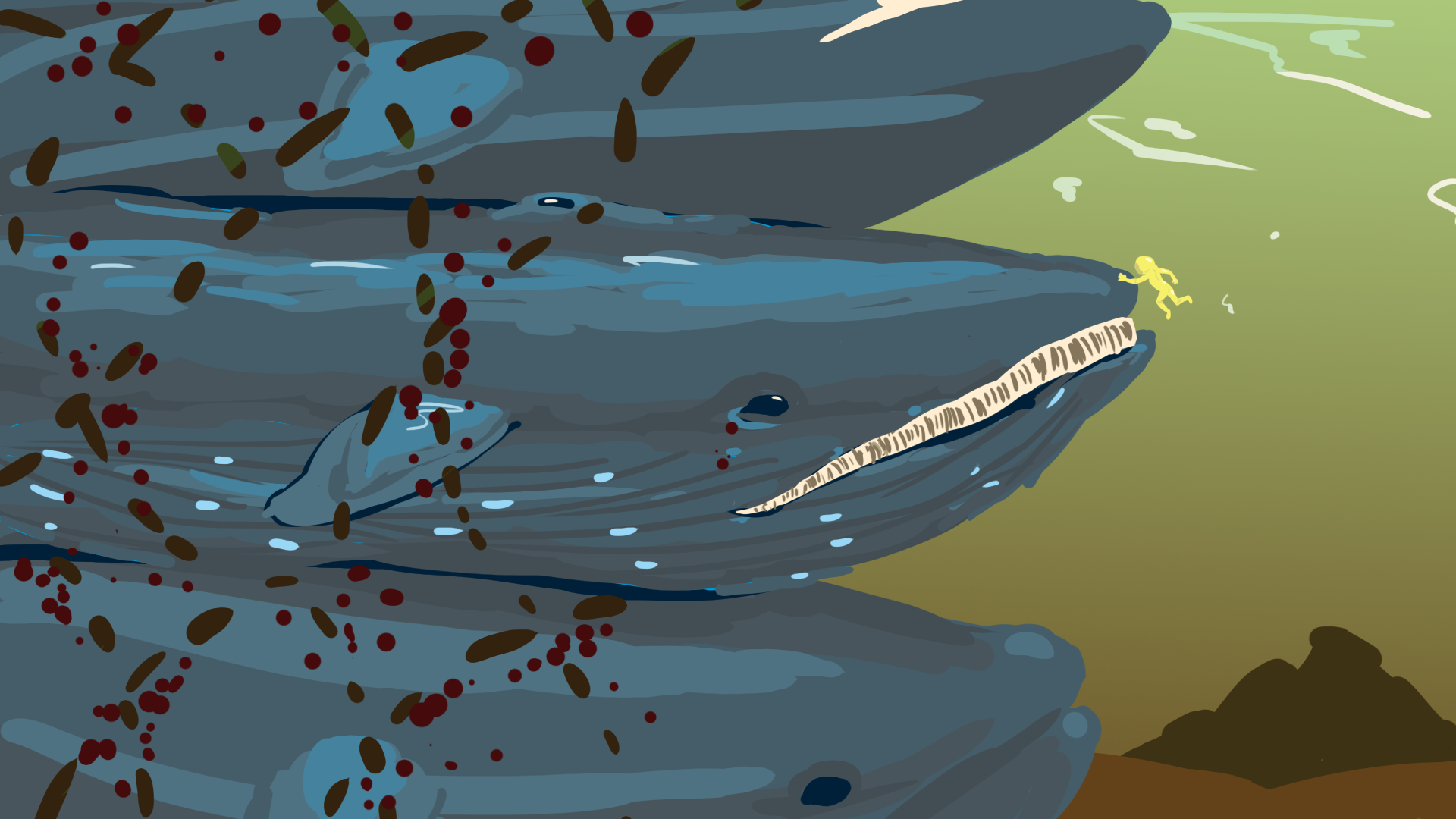The concept for this project emerged from a realization of the widespread lack of knowledge people have about animals essential to keeping them alive. Animals such as whales, wolves, and coyotes are easy to be scared of and not know anything about – and as a result are regularly killed by humans.
Based on this idea, Bales of Amber seeks to educate on the integral role these animals play in our world, and how we, as individuals, have the ability to make an impact on their survival. The core of the project’s conception and construction is to present this lesson in a way that is engaging and interesting, yet still remain distinct in its primary goal as a learning experience. Thus emerged a surrealist, post-apocalyptic, emotion-tapping, research based, and educational game. The language, concepts, and theme of this project are deeply influenced by Porpentine’s With Those We Love Alive, Donna Haraway’s Companion Species Manifesto, and Anna Tsing’s The Mushroom at the End of the World.
Bales of Amber takes an issue not seen closely by many people and hyperbolizes it – presenting the appalling plight of mass extinction and, by extension, government interference (addressing both the pros and cons of said interference). Through this approach, the offered experience interrupts the entrenched idea that there is nothing the everyday person can do to affect the growing problem of extinction, and extends a hand to show that everyone, even as a single influencer, has the ability to to make helping the ecosystem more accessible.
This project is a part of STS education, and especially pushes to engage students in learning about this subject. Additionally, it aids in the development of student’s abilities to make critical decisions about what they do everyday, and analyze how it affects the environment and ecosystem around them. By displaying real-world problems in a hyperbolized, intriguing, and relatable story, students can attain a genuine interest in the environment and their roll in it.
Team
Jennifer Bourke – Project Head


